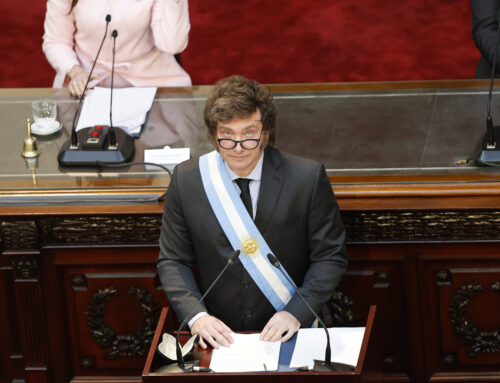Buenos Aires, Argentina – In a groundbreaking move to solidify the nation’s economic future, President Javier Milei’s administration has introduced a bill aimed at permanently prohibiting the government from printing money to finance a fiscal deficit. The proposed legislation, titled the “National Commitment for Fiscal and Monetary Stability Bill,” seeks to formalize the strict economic principles that have become a hallmark of the current government’s policy.
This bold initiative goes beyond a simple budgetary measure. The bill mandates that all future national budgets must present a balance or a surplus, eliminating the possibility of deficit spending. To ensure compliance, it will also incorporate criminal penalties for any public officials who fail to adhere to these strict fiscal rules, underscoring the government’s unwavering commitment to fiscal responsibility and its zero-tolerance policy for financial mismanagement.
The announcement, delivered by presidential spokesperson Manuel Adorni, comes on the heels of the administration’s notable economic achievements. According to the article, President Milei has already succeeded in achieving a monthly fiscal surplus, a feat that has directly contributed to a significant reduction in inflation and poverty. The government views this bill as a crucial step to embed these successes into law, preventing any future administration from reverting to inflationary policies.
Ultimately, the legislation is designed to create a framework for long-term stability and sustained economic growth. By removing the temptation to resort to inflationary financing, the Milei administration is seeking to build a new economic foundation for Argentina, one based on sound money and fiscal prudence. The bill represents a powerful statement of intent to secure the nation’s prosperity for generations to come.






Leave A Comment